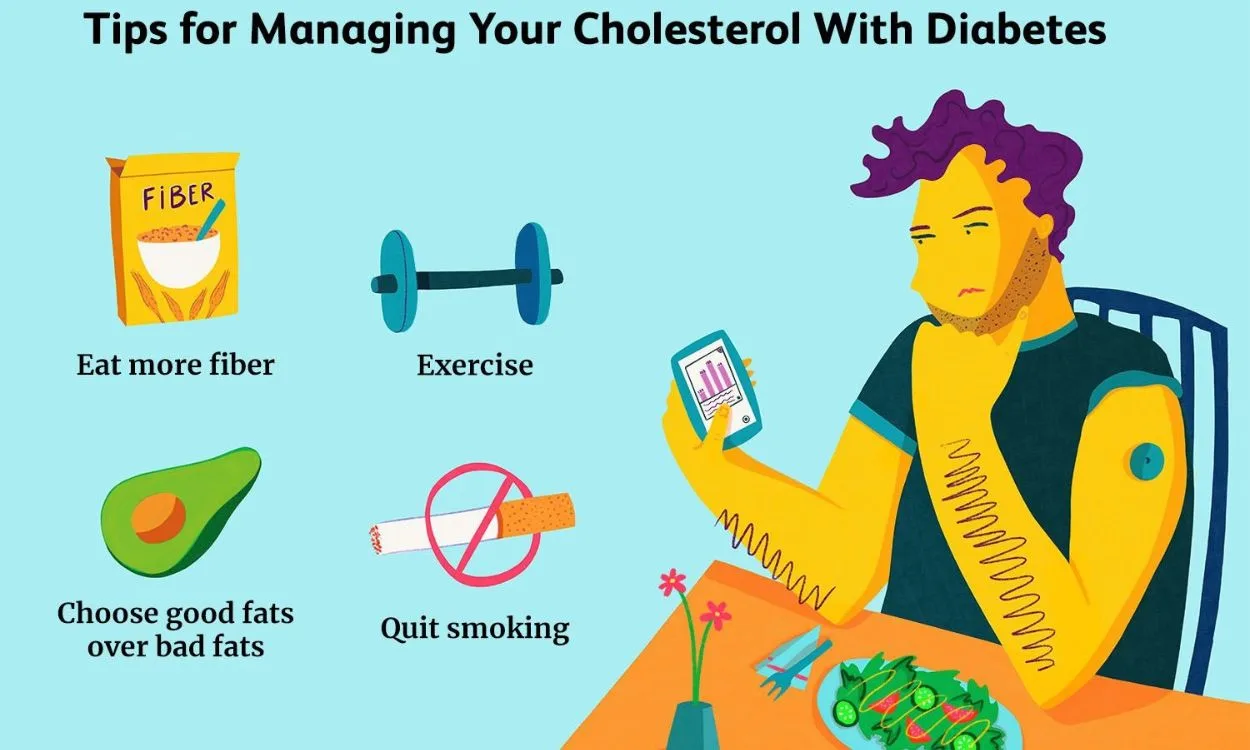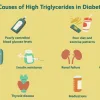What is the Connection Between Diabetes and Cholesterol?
Introduction
Diabetes and cholesterol are two common health conditions that often go hand in hand. Both play a significant role in our overall health and can have a profound impact on our well-being. Understanding the connection between diabetes and cholesterol is crucial for managing these conditions effectively. In this article, we will explore the relationship between diabetes and cholesterol, the risk factors involved, and the steps you can take to maintain a healthy lifestyle.
The Link Between Diabetes and Cholesterol
- Insulin Resistance: Insulin is a hormone that helps regulate blood sugar levels. In individuals with diabetes, the body either does not produce enough insulin or does not use it effectively. Insulin resistance, a hallmark of type 2 diabetes, can also affect cholesterol levels. When insulin resistance occurs, it can lead to an increase in LDL cholesterol (the “bad” cholesterol) and a decrease in HDL cholesterol (the “good” cholesterol).
- Atherosclerosis: Diabetes can contribute to the development of atherosclerosis, a condition characterized by the buildup of plaque in the arteries. High blood sugar levels can damage blood vessels and promote the accumulation of cholesterol and other substances in the arterial walls. This can lead to narrowed and hardened arteries, increasing the risk of heart disease and stroke.
- Triglyceride Levels: Triglycerides are another type of fat found in the bloodstream. Elevated triglyceride levels are often associated with diabetes and can be a result of poor blood sugar control. High triglyceride levels are typically accompanied by low levels of HDL cholesterol, further increasing the risk of cardiovascular complications.
- Inflammation: Both diabetes and high cholesterol can contribute to chronic inflammation in the body. Inflammation plays a key role in the development and progression of various health conditions, including heart disease. Elevated blood sugar levels and high cholesterol can trigger inflammatory responses, leading to further damage to blood vessels and organs.
Risk Factors for Diabetes and High Cholesterol
- Unhealthy Diet: Consuming a diet high in saturated fats, trans fats, and cholesterol can increase the risk of both diabetes and high cholesterol. Processed foods, sugary beverages, and excessive intake of red meat can contribute to insulin resistance and elevated cholesterol levels.
- Sedentary Lifestyle: Lack of physical activity is a significant risk factor for diabetes and high cholesterol. Regular exercise helps improve insulin sensitivity, control blood sugar levels, and promote healthy cholesterol balance.
- Obesity: Being overweight or obese increases the likelihood of developing diabetes and high cholesterol. Excess weight, especially around the abdomen, can contribute to insulin resistance and dyslipidemia (abnormal cholesterol levels).
- Family History: Genetics can play a role in the development of both diabetes and high cholesterol. If you have a close family member with either condition, your risk may be higher.
Managing Diabetes and Cholesterol
- Healthy Eating: A balanced diet rich in fruits, vegetables, whole grains, and lean proteins is essential for managing diabetes and cholesterol. Limiting saturated fats, trans fats, and cholesterol-containing foods can help improve insulin sensitivity and maintain healthy lipid levels.
- Regular Exercise: Engaging in regular physical activity can improve insulin sensitivity, promote weight loss, and enhance cardiovascular health. Aim for at least 150 minutes of moderate-intensity aerobic activity per week, along with strength training exercises.
- Medication: In some cases, medication may be necessary to manage diabetes and high cholesterol levels. Consult with your healthcare provider to determine the most appropriate treatment options for your individual needs.
- Regular Monitoring: Regular check-ups and blood tests are crucial for monitoring your diabetes and cholesterol levels. This allows for early detection of any changes or complications and helps guide treatment decisions.
Fitpaa: Your Health and Fitness Companion
If you are looking for a comprehensive solution to manage your diabetes and cholesterol while achieving your health and fitness goals, Fitpaa is here to help. Fitpaa combines the latest research in lifestyle medicine and behavioral therapy to provide a personalized approach to your well-being.
Fitpaa’s AI-driven metabolism monitoring and management technology takes into account various aspects of your life to assess your current metabolism and identify the root causes of your health conditions. Through the Fitpaa Capsule, a combination of medical therapy, exercise therapy, nutrition therapy, and cognitive behavior therapy, you can optimize your metabolism and achieve your health and fitness goals with a 100 percent guarantee.
The Fitpaa app provides real-time guidance, habit-building techniques, and a virtual workout trainer to keep you motivated and on track. You also have access to a team of fitness planners, nutritionists, and doctors who will review your progress regularly and make necessary adjustments to your plan.
To experience the transformative power of Fitpaa and take control of your health, download the Fitpaa app today. With our goal-oriented services and commitment to your well-being, we promise to help you achieve your health and fitness goals. Your journey towards a healthier, happier life starts now!









